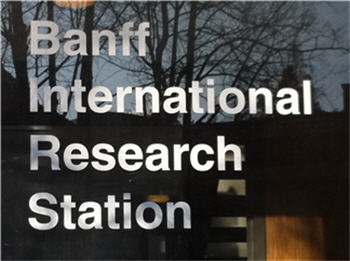
Learn
more about the workshop.
A short overview of the subject area:
Much attention today is directed to the scourges of newly emerging pathogens, and methods for their control. There remain, however, a resilient set of agents that have managed to cause high levels of mortality and morbidity in human populations for centuries, escaping elimination through spatial and temporal fluctuations, and evolutionary adaptation. The only such "endemic" pathogen to have been eliminated by human efforts is smallpox, and the eradication of smallpox was a major achievement of the 20th century.
A number of damaging infections (e.g., polio, measles, mumps, rubella, whooping cough) have been mostly eliminated in large parts of the world (typically by vaccination) but remain persistently endemic (or resurgent) in several areas. Other infections, including malaria and tuberculosis, have been controlled in many areas by public-health measures, but continue to cause widespread morbidity and mortality over large parts of the world. Still other infections, including influenza and HIV, continue to largely defy control through vaccination and public-health measures and cause morbidity and mortality throughout the world.
Different pathogens are transmitted differently and show different evolutionary patterns, necessatating different modelling approaches. For example, childhood respiratory infections, such as polio, measles and whooping cough, generally confer long-term immunity and can be successfully modelled with traditional SIR-type models. Malaria involves an essential life-stage in the mosquito vector, and has more complex interactions with acquired partial immunity. HIV is transmitted primarily sexually, requiring careful consideration of the effects of sexual partnership networks. Influenza has the ability to evolve antigenically novel variants, and thus displays complex interactions with patterns of host immunity.
For over a century, mathematical models have made important contributions to the understanding and control of infectious diseases. However, much more remains to be done, both theoretically and practically. New computational and mathematical tools, including greatly enhanced ability to compare analytical models with detailed individual-based simulation models, make this an excellent time for new mathematical and public-health innovations in this field.
A statement of the objectives of the workshop and an indication of its relevance, importance, and timeliness: We have attended several successful BIRS meetings that have focused on the threat of emerging infectious diseases. These workshops have created links between mathematicians and statisticians, on the one hand, and researchers, public health practitioners and clinicians working in communicable disease control on the other. In the course of these meetings, it has become obvious that we share common interests in endemic infections -- diseases that are already here, causing illness and death, and whose biology we already understand reasonably well. We therefore feel it would be extremely valuable to gather the same sort of group, to discuss and share ideas about control of endemic infections.
We propose to structure the meeting around four major current challenges in the control of endemic infectious diseases. Each challenge will be the theme of a one day of the meeting, while the fifth day, will be reserved for roundtable discussions. Each day will begin with a lecture that introduces the theme and why it represents a major global public health challenge. Shorter talks will then follow, highlighting recent progress in addressing this challenge for specific diseases and/or the development of mathematical and statistical models and analyses that provide tools for making future progress in the area. We will strongly encourage presentations from graduate students and postdocs.
-------------------------
The importance of developing and studying models of endemic infectious diseases would be hard to overstate. These diseases are responsible for millions of deaths annually, and their control and treatment is a major economic burden. By bringing together a group of mathematicians working on infectious disease modelling, public health researchers, and public employees engaged with the logistical realities of disease control, we will foster a productive interchange that will hopefully lead to substantial progress on the development of control strategies for important pathogens.
Finally, we hope to use this conference as a step towards better defining the study of persistence of infections as a field of endeavor within infectious disease epidemiology. In order to do so, the findings shared and goals developed at this meeting will have to be translated to the broader scientific, public health, and lay communities. We propose to do this in several ways: through subsequent presentation of summary slides by participants returned to their home institutions, through publication of 4 short review papers (each reflecting the theme discussed on one of the first four days of the conference) in peer-reviewed journals, and by posting conference documents to an interactive website.
------------------------------ Contact Organizer David Earn
McMaster University, Department of Mathematics & Statistics
earn [AT] math.mcmaster.ca
Supporting Organizers David Fisman
University of Toronto, Dalla Lana School of Public Health
david.fisman [AT] utoronto.ca
Jonathan Dushoff
McMaster University, Department of Biology
dushoff [AT] mcmaster.ca